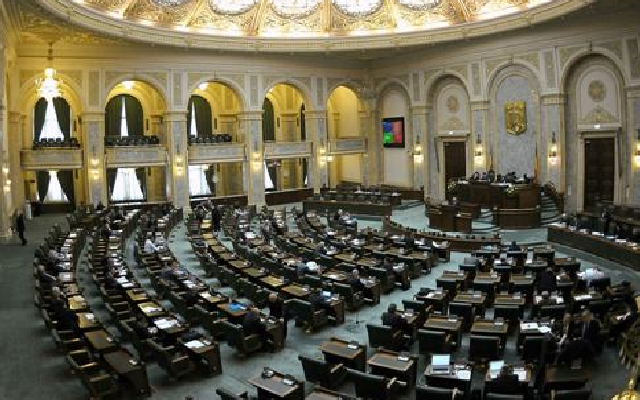Romania has a brand new Fiscal Code
The draft Fiscal Code, tabled by the Government of Romania, was endorsed by the Senate on Monday and is next to the discussed in the Chamber of Deputies

Valentin Țigău, 28.04.2015, 13:51
Romania urgently needed a new Fiscal Code, after the 2003 law was amended tens of times, forcing companies to change their business strategies with each and every amendment. The successive changes and the delays in publishing the secondary legislation generated the widespread perception that the principle of fiscal stability is breached in Romania, and discouraged foreign investors. Viewed by business operators and social actors as hard to enforce, the Romanian fiscal legislation had to be replaced altogether. On Monday the Senate of Romania endorsed the new Fiscal Code bill, which, says the Finance Minister Eugen Teodorovici, is primarily designed to simplify taxation.
Eugen Teodorovici: “Clarity and accessibility in enforcing the Code provisions, transparency in presenting fiscal principles, enhancing the efficiency of managing taxes, duties and social contributions. These measures are likely to make an essential contribution to reducing tax evasion, to boosting consumption and encouraging economic growth.”
Some of the most important provisions in the new Fiscal Code are the VAT reduction from 24 to 20% as of January 1st, 2016 for all goods and services, and to 9% for foodstuffs as of this June, the reduction of fuel and alcohol excises as of next year, the scrapping of special building taxes and of the 16% tax on dividends, as well as the lowering of the flat tax rate from 16 to 14% starting January 2019.
Although the new Code was described as ultra-Liberal, the Liberals in opposition criticised it as unrealistic, and claimed some excessive taxes were preserved under a different name. Previously, the President of Romania Klaus Iohannis had also said he had doubts regarding some of the tax reductions, the management of which the Government had failed to explain. Indeed, the fiscal relaxation measures will reduce state budget revenues by over 37 billion lei in four years, but according to Government estimates half of the amount would be offset by the overall positive impact on the economy.
In turn, the IMF said the tax cuts should be carefully analysed, so that they should not give rise to a budget deficit that would be hard to make up for. Romania’s current loan agreement with the Fund expires in September, but the Government said they would not ask for an IMF official opinion on the Code, because its provisions take effect in 2016, when Romania will probably not need a new agreement.






























